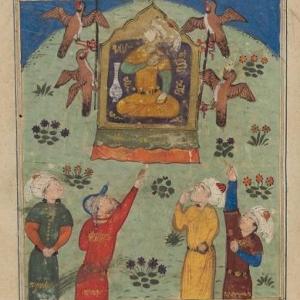
Ms. orient. T 186, fol. 252r
© Forschungsbibliothek Gotha der Universität Erfurt
The perception of Yezidis and Yezidism by Muslim scholars and jurists has historically been, and remains, a contentious issue. These views have been officially articulated through the issuance of fatwās (religious decrees) and declarations, many of which have recently been published online in the form of writings, recordings, and videos. While these fatwās and statements do not reflect the stance of all Muslims towards the Yezidis, they nonetheless serve as legal sources that delineate the status of Yezidis within Islamic communities according to Islamic Law.
This study delves into the origins of Islamic hostility toward the Yezidis and their religion by comparing historical and contemporary Islamic attitudes and actions towards them. The core focus is on examining the perspectives of Muslim jurists and scholars towards Yezidis, particularly in the aftermath of the Yezidi genocide perpetrated by the Islamic State in 2014.
The lecture will be delivered by Dr. Qader Shammo (LMU München) as part of the series Cultures of Islam: Latest research by the Munich Middle Eastern-Mediterranean-Central Asian Center (4MZ).
You can find more information on the 4MZ website.
